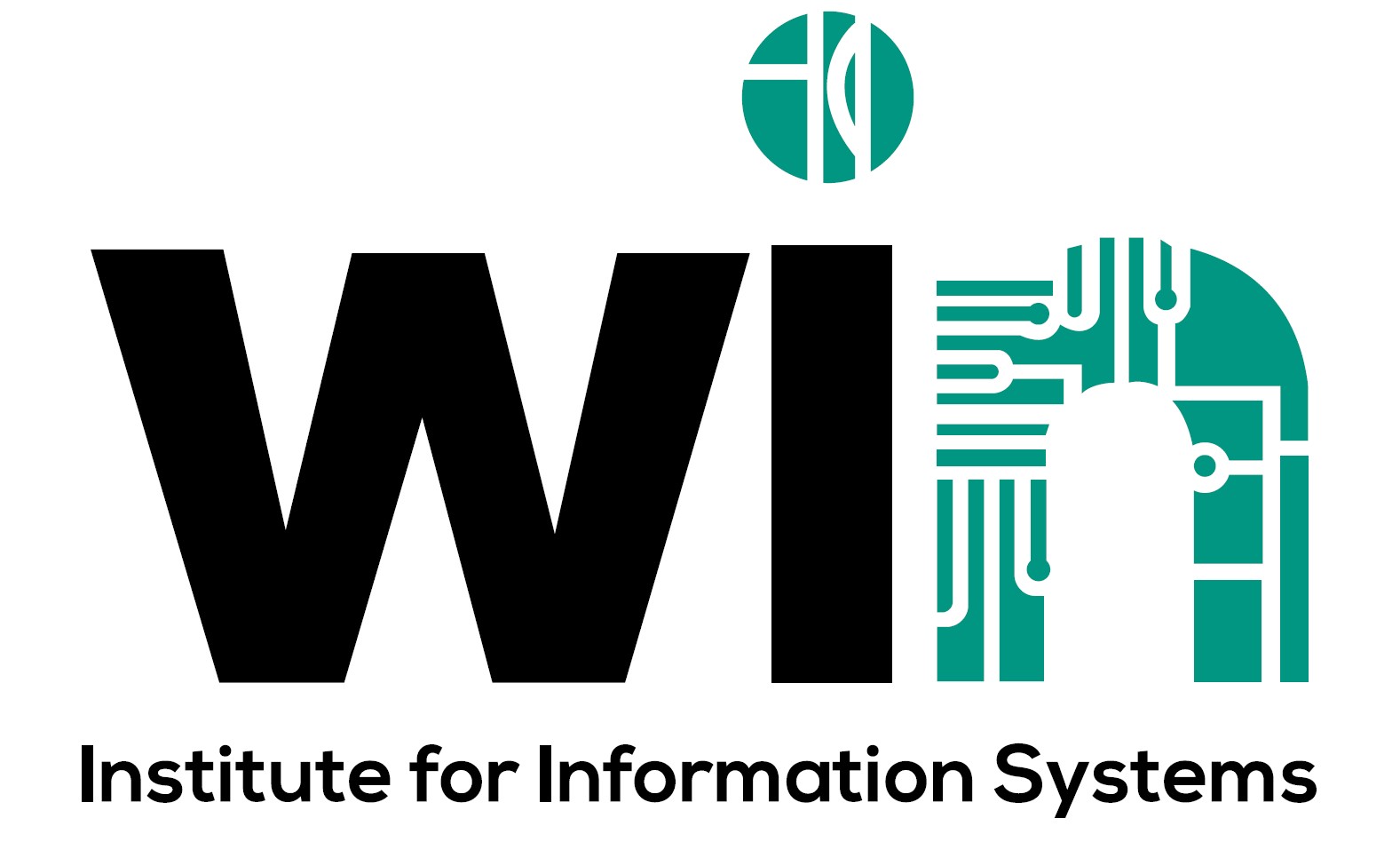Welcome
The Institute for Information Systems (WIN) was established on January 1, 2025 at the Karlsruhe Institute of Technology (KIT). The founding of the WIN Institute at KIT is a response to the growing importance of investigating and designing the digitalization of economy and society from a socio-technical perspective.
The mission of WIN is to create value from information! We strive for top-tier research in information systems and related fields, leveraging unique research infrastructures, strong community ties, and close collaboration with business, society, and politics to drive innovation. We deliver solutions for real-world problems, and inspire as well as challenge our students through research- and practice-based teaching.
The following research groups belong to WIN:
| Information Systems I | human-centered systems lab (h-lab) | Prof. Dr. Alexander Mädche |
| Information Systems II - Digital Energy Markets | Prof. Dr. Philipp Staudt (starting Feb 26) |
| Information Systems III | Prof. Dr. Jella Pfeiffer |
| Information Systems IV - Digital Platforms & Services | TT W1 N.N. |
| Information and Market Engineering (IM) | Prof. Dr. Christof Weinhardt |
In addition, two industry-on-campus collaborations belong to WIN:
| Digital Service Innovation (DSI) - IBM Industry-on-Campus Group | Prof. Dr. Gerhard Satzger, Dr. Carsten Holtmann |
|
Dr. Rainer Hoffmann, Dr. Sebastian Sternberg |
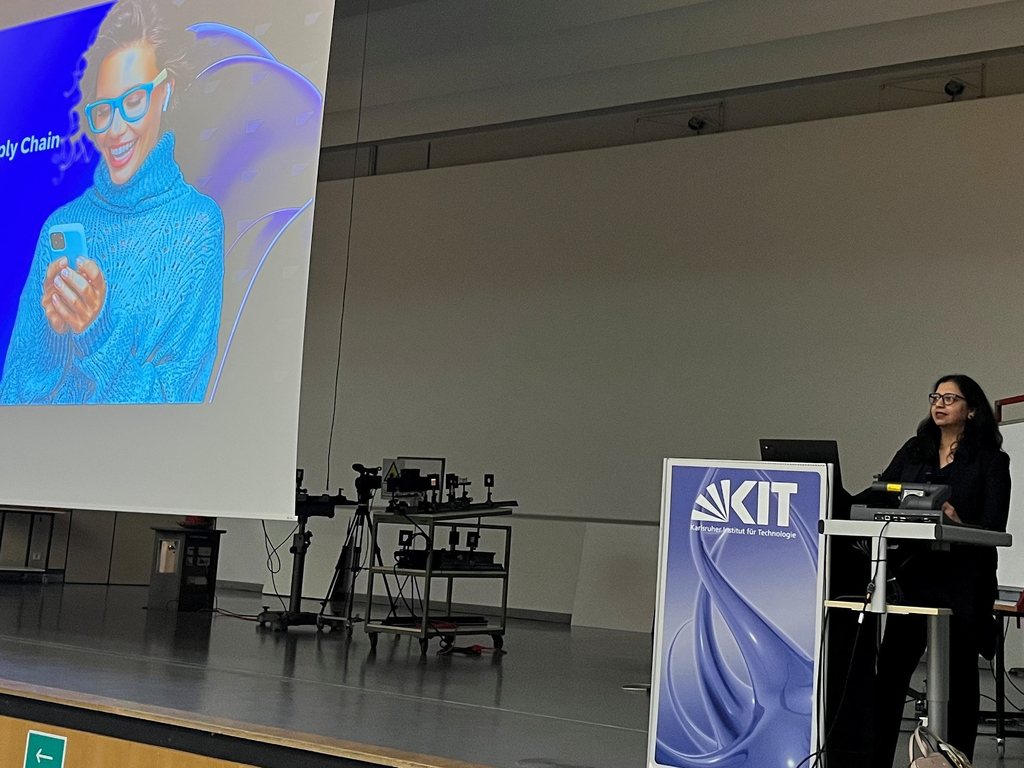
On January 12th 2026, Ekta Narang from SAP SE Supply Chain Management gave an industry talk in our bachelor lecture “BWL | Information Systems”. In her talk, she highlighted the current "value gap" in AI adoption, where significant investment often yields low returns due to disjointed data, siloed solutions, and organizational complexity. As a response, she presented the concept of “SAP Business AI" that integrates context-rich data, provides unified user experiences, and role-aware AI assistants integrated into business processes.
More
The INFORTE.fi programme is hosting an "Advanced Laddering Interviews and Analysis" course from March 10 to March 12, 2026, at the University of Jyväskylä, Finland. This specialized training introduces participants to the laddering interview technique, an advanced qualitative method used to uncover complex user behaviors and deep-seated values in information systems and service research. The course will be taught by Prof. Tuure Tuunanen and Dr. Juuli Lumivalo from the University of Jyväskylä, along with Prof. Alexander Maedche and Mr. Leon Hanschmann from the human-centered systems lab of the Karlsruhe Institute of Technology (KIT).
More
We would like to wish all our students and partners a Merry Christmas and a Happy New Year. Thank you for the inspiring and fruitful cooperation throughout 2025. We look forward to continuing our successful collaboration in the coming year and wish you a joyful holiday season and a great start into 2026.
We will discontinue on-site operations between Tuesday, December 23rd, 2025 to Tuesday, January 6th, 2026. From Wednesday 7th, 2026 the regular opening hours will apply again.
More
Artificial intelligence (AI) is a transformative force, upending teaching and learning, science, and the working environment. In issue 04/2025 of the lookKIT magazine, Dr. Julia Seitz, Thimo Schulz from the Institute for Information Systems (WIN) report on the MenschKI! project focusing on understanding and designing the interaction between humans and AI for productivity and well-being. Furthermore, Dr. Florian Kuhlmeier presents our research in the field of Mental Health Therapy Companions.
More
Complex software-based systems consist of a multitude of elements that interact in various ways. This includes cyber-physical systems like cars, which comprise numerous software and hardware components, as well as software products on which multiple development teams work on different software elements. Consistency problems represent a key challenge in the development of complex software-based systems.
More
Every year, the challenge of finding good Christmas gifts returns. Artificial intelligence (AI) is increasingly used to suggest ideas, but in an SWR3 interview, Martin Feick from the human-centered systems lab (h-lab) emphasizes that while AI can help overcome “blank page paralysis,” prompts should always include a personal touch. He warns against relying solely on AI — a thoughtful, human-crafted gift still matters most. In the interview, he also shares tips on how to prompt AI more effectively for meaningful gift ideas.
More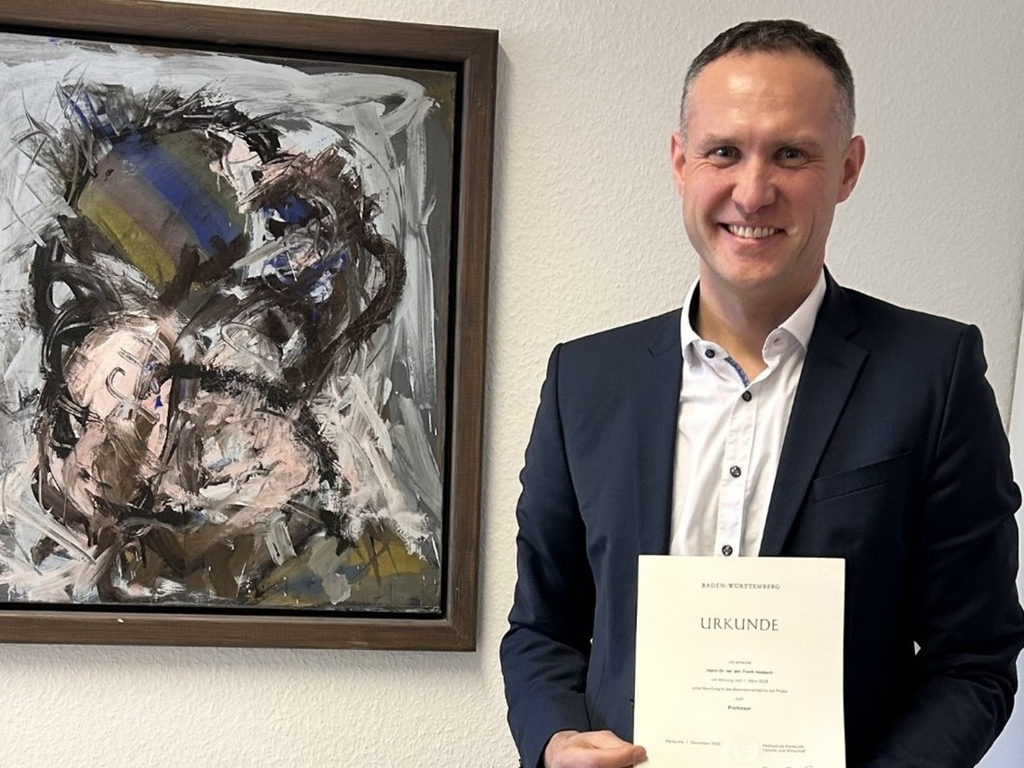
We are delighted to announce the appointment of Dr. Frank Hadasch, former member of the research group of Prof. Mädche. as professor at the Karlsruhe University of Applied Sciences. Frank Hadasch worked at the Chair of Information Systems IV (formerly headed by Prof. Mädche at the University of Mannheim) and received his doctorate in 2014. After working in various management roles at Atruvia AG, Frank Hadasch will start his new job at the Faculty of Computer Science and Business Information Systems in the “IT Operations and IT Security” department on March 1, 2026.
More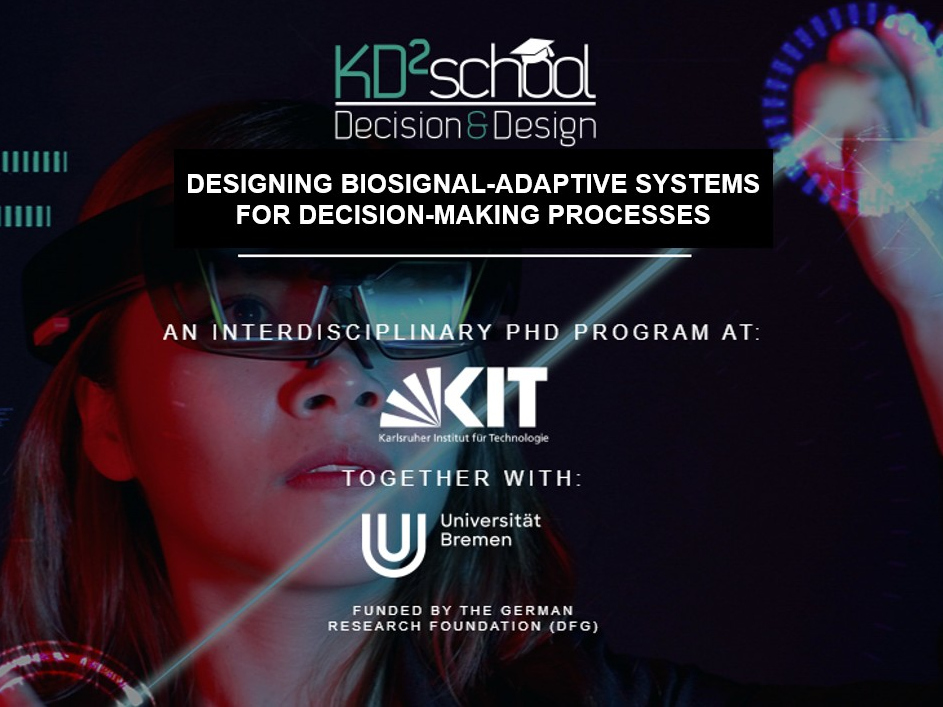
The DFG Research Training Group (RTG) KD²School will receive funding for another five years. In this RTG, KIT is collaborating with the Universities of Bremen and of Oldenburg to research the design of biosignal-adaptive systems for decision-making processes in economic contexts as well as in private and professional life. The RTG’s spokespersonship is anchored at the Institute for Information Systems (WIN), with Prof. Dr. Christof Weinhardt leading the first funding period and Prof. Dr. Alexander Mädche assuming responsibility for the second.
More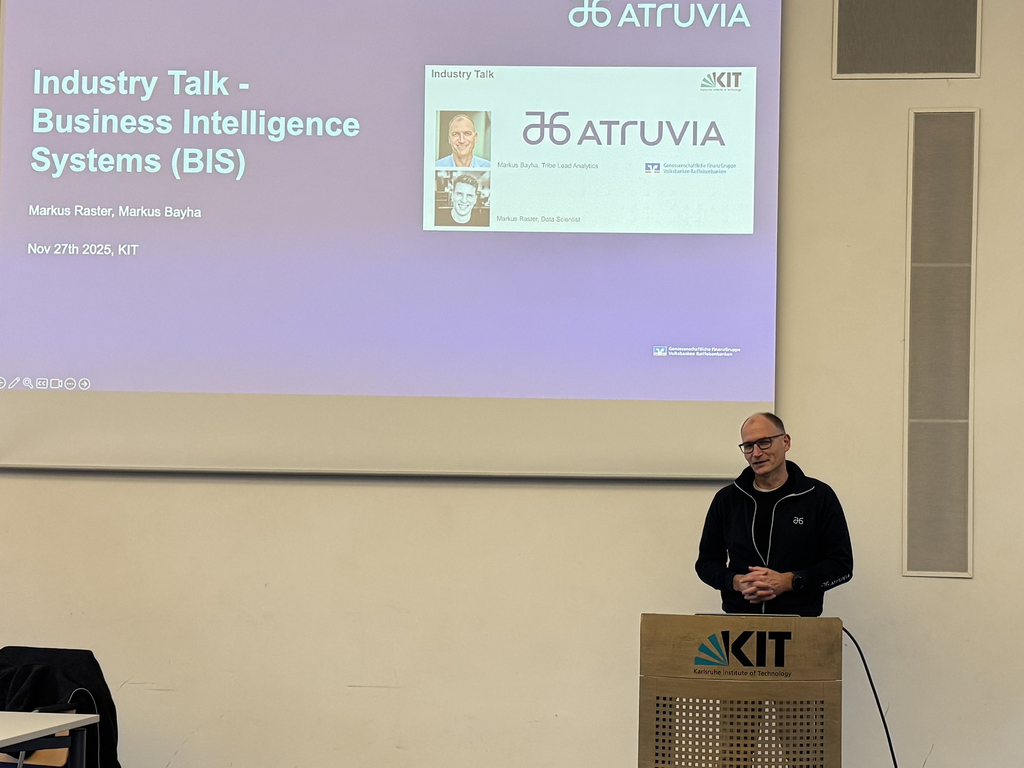
On 27 November 2025, Markus Baya (Tribe Lead Analytics) and Markus Raster (Data Scientist and Product Owner) from atruvia AG gave an industry talk in our master lecture “Business Intelligence Systems”.
In their talk, they presented the evolution from Data Warehouses, to Data Lakes and Data Meshes in the last 20 years at Atruvia AG. They also demonstrated state-of-the-art business intelligence systems in retail banking, showcasing how modern architectures and business intelligence & analytics platforms insight-driven financial services.
More_rdax_1024x768_98p.JPG)
Our research team at WIN just hosted the 5th iteration of "Biosignals Connect" (BioCon) in the KD2Lab – an event series that brings together international researchers with shared interests in biosignals and adaptive systems.
On two days, we saw 14 presentations from KIT, Politecnico di Milano, University of Milano, University of Bremen, and SUPSI – covering research from information systems, industrial engineering, marketing, psychology and biomedical engineering.
More
Whether it's online appointment booking, waste collection calendars, or daycare registration – digital services have long been a part of everyday life. For them to truly make life easier, they must be user-friendly. This is precisely where the first nationwide User Climate Test 2026 comes in: The non-profit organization UIG e.V., in partnership with the Institute for Information Systems (WIN) at KIT aims to determine how user-friendly digital services in German cities actually are.
More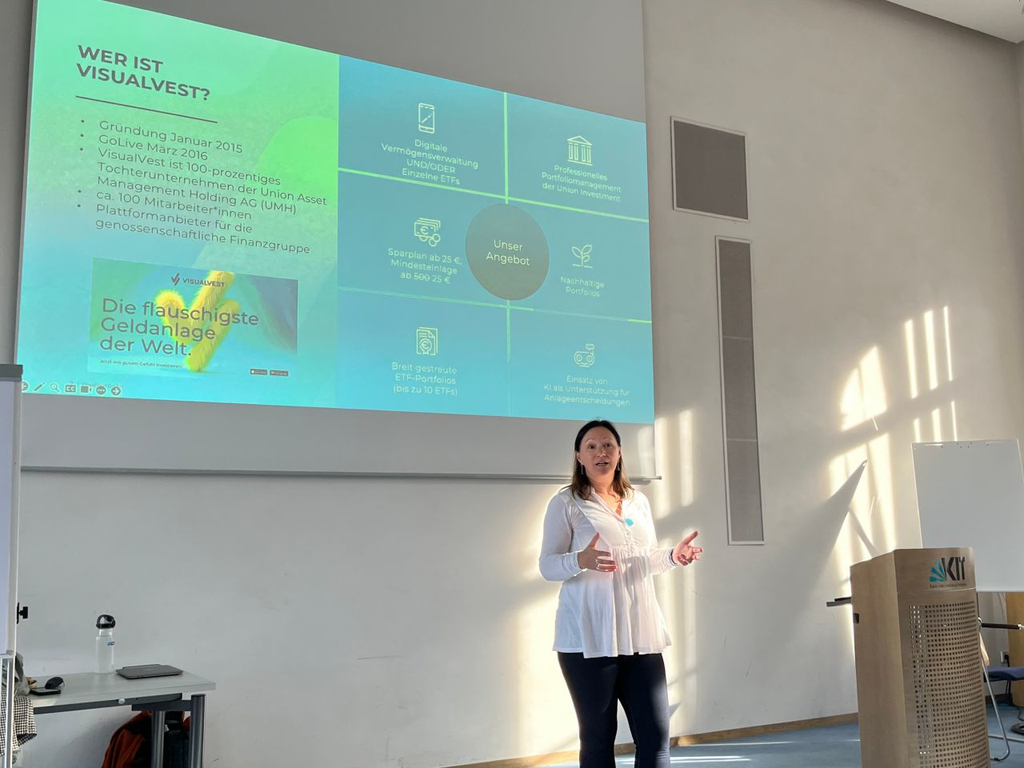
On November 11, 2025, Dr. David Dann, Jakob Leander Müller, and Katja Speck, Managing Director of Visualvest GmbH, gave a guest lecture providing practical insights into their user research activities. Visualvest GmbH is a 100% owned subsidiary of the Union Investment Group, thus combining the financial expertise and security of one of Germany's leading fund management companies with the flexibility and speed of a FinTech.
More
